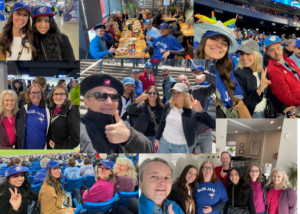The Importance of a ‘Ferris Bueller’ Company Day Off
By Admin |
2.7 min read

Unplugging for Success: The Power of a ‘Ferris Bueller’ Company Day Off
In today’s fast-paced and highly competitive work environment, companies need to value their employees’ mental and emotional well-being. This is where the concept of a “Ferris Bueller” company day off comes into play. A Ferris Bueller day off is a day when the company gives its employees a break from work and encourages them to recharge, relax, and bond with their colleagues. The idea is to give employees a chance to unwind, destress, and come back to work feeling refreshed and energized.
At Predictive Success, we have been practicing the Ferris Bueller day off concept for many years. We believe that it is essential to provide our employees with an opportunity to take a break from their work routine and enjoy some quality time with their peers. We understand that work can be stressful, and it is crucial to give our employees time to rejuvenate and come back to work with a fresh perspective.
This week, the Predictive Success team had the pleasure of venturing down to downtown Toronto for an exciting day out. The team gathered for a delightful lunch and headed out to catch a thrilling Jays game. Taking in the electrifying atmosphere of the stadium and enjoying each other’s company. It was a day full of great food, sports, and team bonding, providing a well-deserved break from the everyday routine of the office. The experience served as a reminder of the importance of taking some time to unwind and connect with colleagues outside of the workplace.
The Benefits
- Firstly, it helps employees recharge their batteries and reduces the risk of burnout. When employees take time off to relax and recharge, they are more productive and efficient when they return to work.
- Secondly, it provides an opportunity for employees to bond with their colleagues. A day off can help build stronger relationships and foster a sense of community within the workplace.
- Thirdly, it boosts employee morale and engagement. When employees feel that their company cares about their well-being, they are more motivated and engaged in their work.
At Predictive Success, we take our employees’ well-being seriously. We believe that happy and healthy employees are key to a successful business. Our Ferris Bueller day off is just one of the many ways in which we show our employees that we value them. We encourage our employees to take the day off, relax, and spend quality time with their colleagues.
Closing Thoughts
The Ferris Bueller day off concept is an essential aspect of modern-day work culture. It helps employees recharge, bond, and come back to work with renewed energy and enthusiasm. At Predictive Success, we have been practicing this concept for many years and have seen firsthand the positive impact it has on our employees’ well-being and overall success. We encourage other companies to adopt this concept and make their employees’ well-being a top priority.
About Predictive Success
Predictive Success empowers leaders to optimize workforce performance through proven talent management methodologies, high-performing team-building technology and collected employee or potential candidate data. To learn more about how you can work with our team, please contact us today.
Related Blogs
How to Develop Essential Leadership Skills
In recent years the way we work has changed and with that comes a change to leadership. The COVID-19 pandemic made a profound impact on the work environment with an increase in people working from
The Year-End Talent Playbook: Setting Your Workforce Up for Success in 2025
Success in 2025 starts with the decisions you make today. The workforce landscape is rapidly evolving, and organizations must be proactive in aligning their talent strategies with future business goals. The year-end period offers an
Innovative Hiring Tools: Transforming Your Recruitment Process
Recruitment is no longer just about filling open positions; it’s about finding the right people whose skills and personalities align with both the demands of the role and the culture of the organization. Traditional hiring


